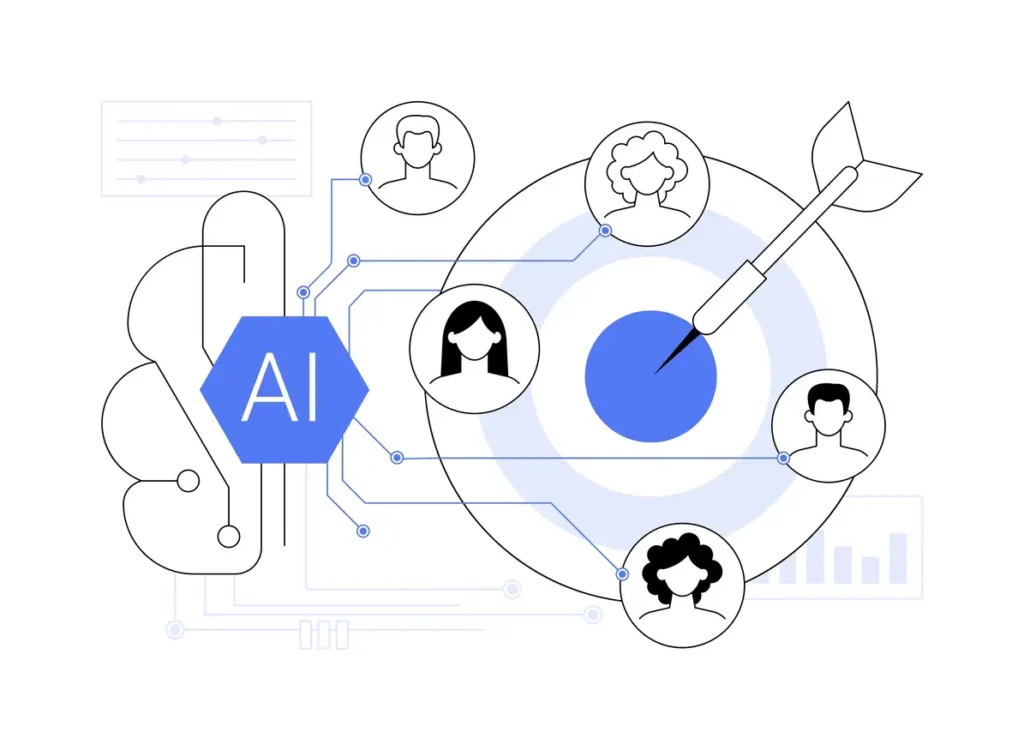How AI Automation For B2B supports data-driven decision-making
Revolutionize Your Organization: Just How AI Automation Is Transforming B2B Operations
AI automation is reshaping B2B operations in significant ways. Business are embracing this innovation to streamline workflows and enhance performance. As tasks become automated, companies can concentrate on strategic development instead of mundane procedures. The ramifications of these modifications are extensive, influencing every little thing from consumer communications to provide chain administration. Recognizing this improvement is essential, as the future of company joints on the effective combination of AI right into day-to-day operations. What lies ahead in this progressing landscape?
Comprehending AI Automation in B2B Context
As organizations significantly seek performance, understanding AI automation within the B2B context becomes important. AI automation refers to the application of expert system innovations to enhance and enhance company processes. In B2B atmospheres, this can manifest in various kinds, such as automating information access, maximizing supply chain logistics, or boosting supply management. Organizations leveraging AI automation can minimize functional prices, lessen human error, and rise performance. AI tools can analyze substantial amounts of data to offer workable understandings, enabling notified decision-making. The assimilation of AI into B2B operations not just transforms traditional workflows yet additionally fosters dexterity and scalability, enabling organizations to adapt to market adjustments swiftly and properly. Welcoming this modern technology is crucial for staying affordable in today's electronic landscape.
Enhancing Client Experience Via AI
Just how can AI change consumer interactions in the B2B sector? AI improves customer experience by providing individualized, prompt, and reliable solution. Intelligent chatbots and virtual aides can deal with queries 24/7, guaranteeing customers receive instant reactions. Anticipating analytics make it possible for services to anticipate client requirements, tailoring offerings accordingly. AI-driven systems can evaluate consumer information, enabling targeted advertising and marketing techniques and improved involvement. Additionally, belief evaluation devices evaluate consumer comments, helping organizations fine-tune their services. By automating regular tasks, AI liberates personnels to concentrate on high-value communications, cultivating more powerful connections. The combination of AI not just streamlines interaction yet also develops trust and loyalty, eventually elevating the general customer experience in the competitive B2B landscape.
Streamlining Supply Chain Administration With AI
AI plays a vital role in optimizing supply chain administration via anticipating analytics and automated stock control (Minarik AI). By leveraging anticipating analytics, services can anticipate demand changes and readjust their operations appropriately. Automated stock systems additionally improve efficiency by ensuring stock levels are maintained, lowering waste and enhancing overall efficiency

Anticipating Analytics Advantages
While numerous services encounter difficulties in handling complex supply chains, anticipating analytics offers a transformative remedy by leveraging large amounts of information to anticipate trends and maximize operations. By analyzing historical information along with real-time inputs, predictive analytics makes it possible for business to determine patterns and anticipate future demands. This insight permits more educated decision-making, boosting efficiency and minimizing costs. On top of that, businesses can proactively deal with prospective interruptions by predicting supply chain bottlenecks and changing methods as necessary. The integration of anticipating analytics not just enhances supply administration but likewise promotes stronger relationships with providers and customers through prompt actions to market shifts. Inevitably, the adoption of anticipating analytics encourages companies to stay affordable in an increasingly vibrant organization atmosphere.
Automated Stock Control
As organizations progressively rely upon anticipating analytics to optimize supply chain operations, automated stock control becomes an effective ally in this effort. By leveraging AI-driven innovations, firms can boost precision in supply monitoring, minimize stockouts, and reduce excess stock. Automated systems analyze real-time data, enabling companies to predict demand variations and adjust stock levels as necessary. This not only simplifies order fulfillment however also boosts cash circulation administration by minimizing holding costs. In addition, AI can identify patterns in buying behavior, enabling more informed decision-making relating to vendor partnerships and procurement techniques. Inevitably, automated stock control not only improves operational efficiency but also enhances client complete satisfaction by ensuring product schedule, solidifying its function as a crucial part in modern-day supply chain administration.
Data-Driven Decision Making Powered by AI
In today's affordable landscape, organizations increasingly depend on data-driven decision-making to enhance operational performance and tactical planning. Artificial knowledge plays a critical function in this transformation by examining large quantities of data swiftly and accurately. AI formulas recognize patterns, fads, and anomalies that human experts may ignore, making it possible for organizations to make informed decisions based upon real-time understandings - B2B Growth Consulting. This capacity allows companies to predict market shifts, maximize source allocation, and customize their offerings to consumer requirements. Furthermore, AI-driven analytics promote threat evaluation and monitoring, ensuring that companies can browse unpredictabilities effectively. By leveraging these sophisticated tools, businesses not only boost their decision-making procedures however additionally acquire an affordable advantage in their respective markets, promoting development and advancement
Automating Recurring Tasks to Increase Performance
Simplifying recurring tasks with automation considerably boosts efficiency within B2B operations. By executing AI-driven options, business can eliminate ordinary tasks such as information entry, billing processing, and report generation. This shift permits employees to concentrate on higher-value tasks, promoting creativity and strategic reasoning. Automating these time-consuming processes not only decreases human mistake however also accelerates workflow performance. Furthermore, services can achieve regular results and enhanced precision, which is vital in maintaining client contentment. The assimilation of automation devices allows organizations to allocate resources extra properly, making sure that groups can react quickly to market demands. Eventually, adopting AI for repetitive tasks is a critical action that transforms functional capacities and drives overall company development.
Integrating AI With Existing Company Processes
When integrating AI with existing business processes, lots of organizations encounter challenges. These obstacles frequently originate from an absence of comprehending pertaining to just how AI can match existing workflows. Effective integration needs a comprehensive evaluation of existing operations to determine areas where AI can include worth. Organizations needs to likewise ensure that their teams are furnished with the essential skills to take advantage of AI tools successfully - AI Automation For B2B. Additionally, smooth integration hinges on the compatibility of AI innovations with legacy systems. Business commonly discover it useful to adopt a phased technique, piloting AI applications in particular divisions prior to a wider rollout. This method enables modifications based on preliminary feedback, ensuring smoother changes and taking full advantage of the possible benefits of AI automation in Business Process Automation boosting performance and performance
Future Patterns in AI Automation for B2B Companies
As B2B firms want to the future, improved data analytics is readied to play a crucial function in driving decision-making procedures. Intelligent process automation will certainly also become a vital trend, improving and streamlining operations efficiency. These improvements promise to reshape how businesses run, eventually resulting in more responsive and dexterous organizations.
Improved Data Analytics
While organizations increasingly rely upon data-driven decisions, the role of AI in enhancing data analytics is coming to be a lot more crucial in B2B operations. AI innovations help with the collection and analysis of large datasets, making it possible for firms to discover beneficial insights that drive critical preparation. Predictive analytics powered by AI allows organizations to forecast market fads and consumer habits with higher accuracy. Additionally, machine knowing formulas enhance data analysis, recognizing patterns that human experts may neglect. This causes more informed decision-making and enhanced resource allotment. As B2B business continue to welcome AI-driven analytics, they can anticipate improved operational effectiveness, boosted client experiences, and an one-upmanship in the marketplace. The future of information analytics in B2B depends upon incorporating innovative AI abilities.
Intelligent Refine Automation
Intelligent Refine Automation (IPA) is positioned to revolutionize B2B operations by flawlessly incorporating AI technologies with standard organization processes. This innovative technique combines robot process automation (RPA) with innovative AI capacities, allowing organizations to improve performance and precision. Firms can automate repetitive jobs, such as information entry and invoice processing, permitting workers to concentrate on tactical initiatives. IPA additionally leverages equipment learning and natural language processing, enhancing decision-making with real-time information evaluation. As organizations progressively embrace IPA, they can anticipate substantial expense decreases and improved consumer experiences. Future fads indicate an expanding reliance on IPA for scalability and versatility, positioning companies to prosper in an ever-evolving market. Embracing IPA will certainly be crucial for maintaining competition in the digital age.
Often Asked Concerns
What Industries Advantage A Lot Of From AI Automation in B2B Workflow?

How Can Small Organizations Implement AI Automation Effectively?
Local business can carry out AI automation properly by recognizing recurring jobs, picking proper devices, incorporating remedies gradually, training personnel, and constantly assessing performance to optimize processes, making the most of and making sure a smooth transition performance.
What Are the Expenses Connected With AI Automation Implementation?
The expenses related to AI automation implementation commonly include software procurement, framework upgrades, educating personnel, ongoing maintenance, and possible consultation charges. These expenditures can vary considerably based upon the scale and intricacy of the automation solutions picked.
Exactly how Do I Determine ROI From AI Automation Initiatives?
To measure ROI from AI automation initiatives, one need to examine expense savings, productivity renovations, and earnings development versus application prices. Tracking essential efficiency indications with time gives beneficial understandings into effectiveness and general return on investment.
What Skills Are Needed to Manage AI Automation Projects?
Effective administration of AI automation tasks calls for abilities in project monitoring, data analysis, shows, and comprehending AI technologies. Additionally, solid interaction, analytical capabilities, and adaptability are necessary for maneuvering the complexities of such initiatives.
As businesses progressively seek effectiveness, comprehending AI automation within the B2B context comes to be vital. The integration of AI into B2B operations not only transforms conventional workflows however likewise promotes agility and scalability, allowing organizations to adapt to market modifications promptly and properly. While services significantly count on data-driven decisions, the function of AI in improving data analytics is ending up being more essential in B2B operations - AI Automation For B2B. Intelligent Process Automation (IPA) is poised to transform B2B procedures by effortlessly integrating AI technologies with standard service procedures. Reliable monitoring of AI automation projects calls for abilities in task administration, information evaluation, shows, and comprehending AI modern technologies